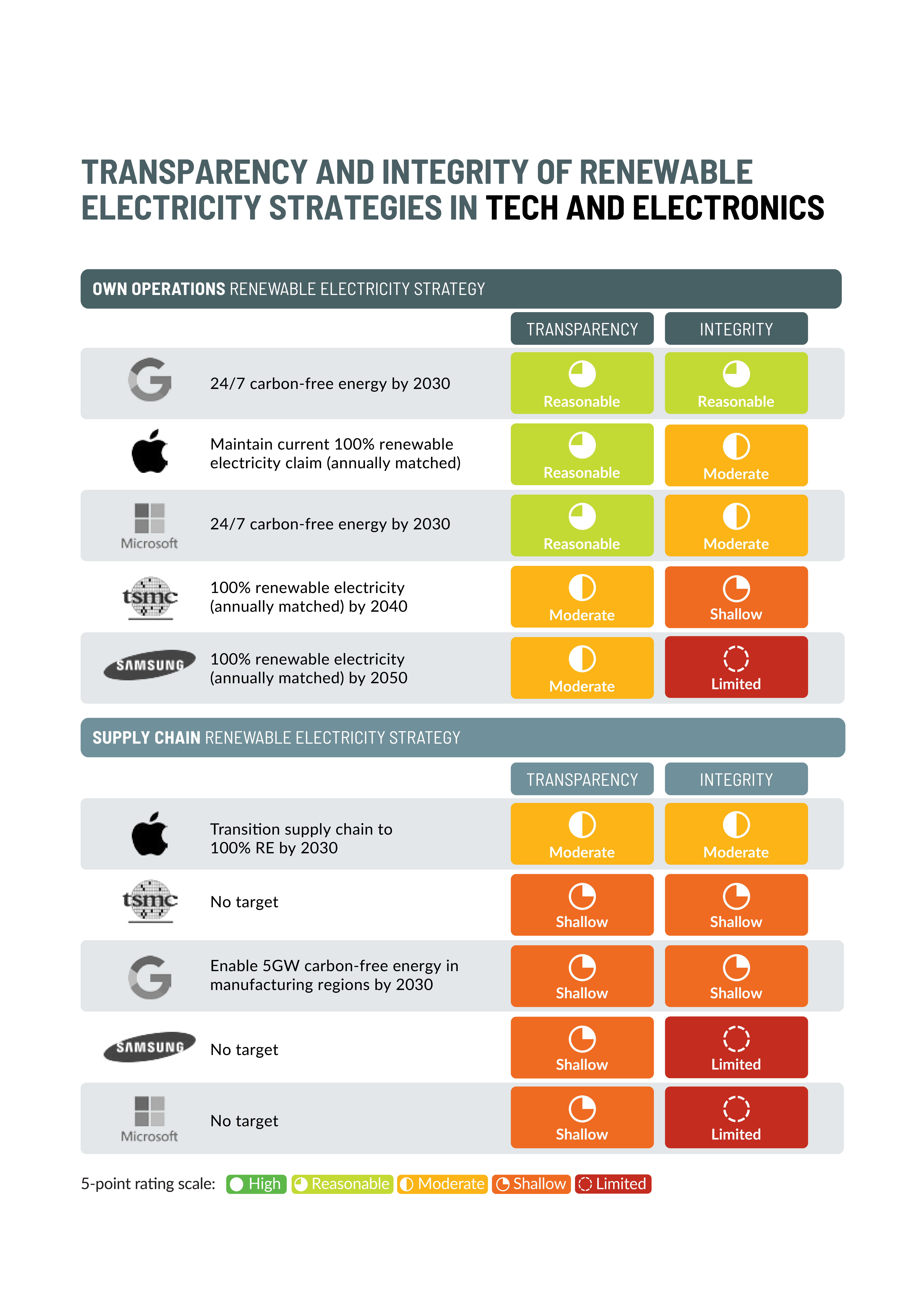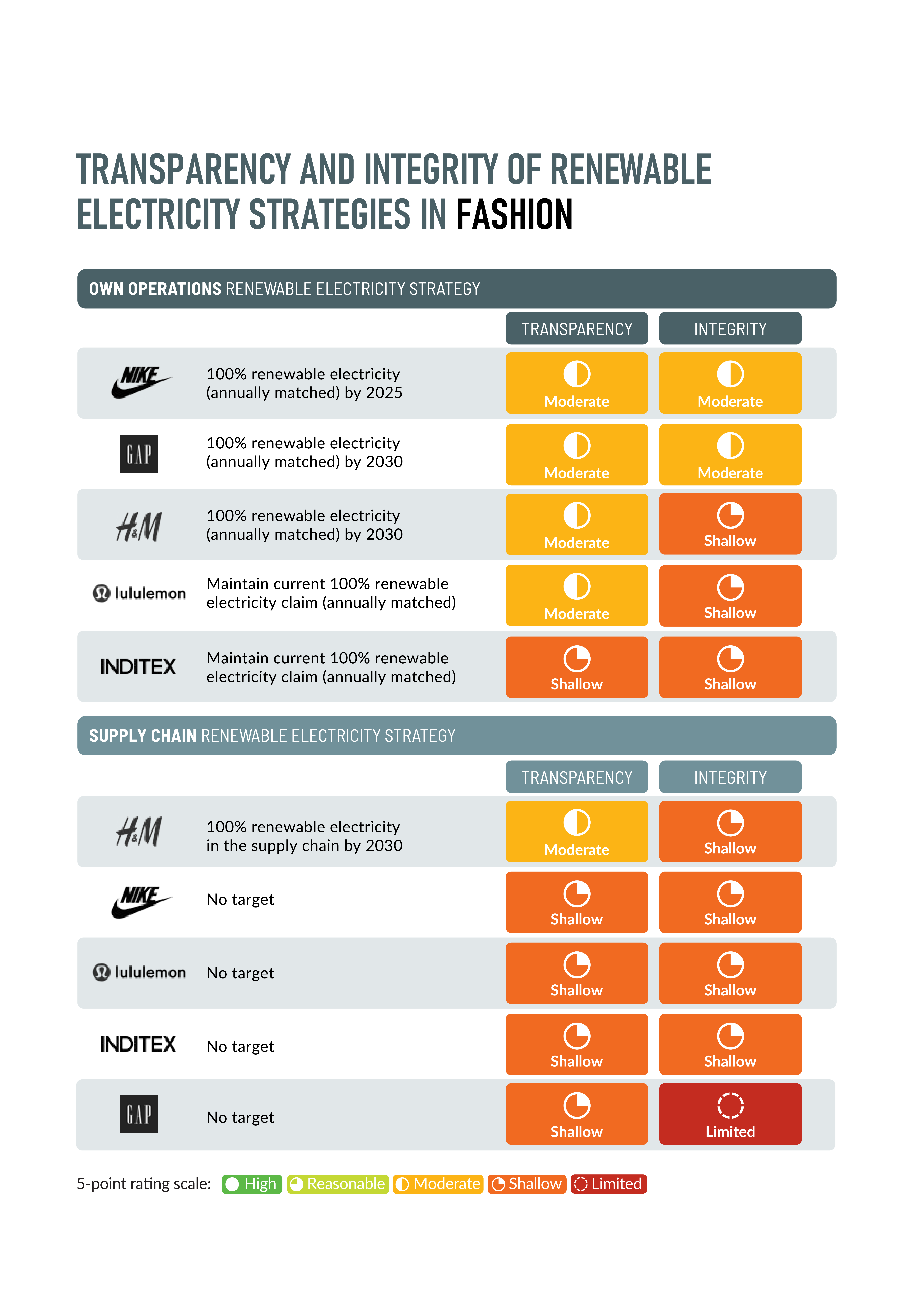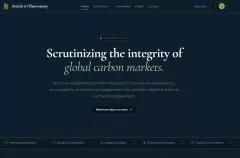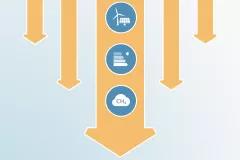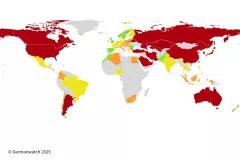BERLIN (16 January 2024) – The renewable electricity commitments of 10 major companies in the fashion and tech industries vary widely in terms of ambition and credibility. Standard-setting initiatives provide very limited incentives and sometimes even barriers to companies striving for more impactful renewable electricity strategies.
A special edition of the Corporate Climate Responsibility Monitor assesses the integrity of renewable electricity targets from 10 major companies in fashion and tech. Switching to renewable electricity is a key measure for companies to decarbonise their own operations and their supply chains. But depending on how companies go about buying renewable electricity, corporates can also use 100% renewable electricity claims to greenwash their activities.
Google is the only company whose strategy for consuming renewable electricity in its own operations is rated as having a reasonable level of integrity by the report. The report found the strategies of four companies – Apple, Gap, Microsoft, and Nike – to have a moderate level of integrity, while the other five companies have shallow or limited integrity (see table). While the report identifies some positive elements and good progress in companies’ strategies for renewable electricity in own operations, renewable electricity for the supply chain remains an underdeveloped blind spot. Apple is the only company whose renewable electricity strategy for the supply chain is rated as moderate integrity, with the other nine companies having shallow or limited integrity (see table). The limited attention for increasing renewable electricity use in the supply chain is in stark contrast with the need for an exponential increase of renewable capacity in the near future, especially in supply chain regions.
The report finds that the real GHG emission reduction impact of companies’ renewable electricity claims is often far less than implied. Several companies, including H&M Group, Inditex and Samsung Electronics, continue to rely heavily on standalone Renewable Energy Certificates (RECs), despite mounting evidence and awareness that this low-cost instrument is very unlikely to contribute to additional renewable capacity. In many cases, there is no or a very weak physical link between the grid where the RECs were generated, and the grid where the renewable electricity is claimed. For instance, companies may procure RECs generated in Norway to claim they are using renewable electricity in Bulgaria. This action sends no signal to Norwegian power suppliers, who already are producing most of their electricity from renewables, nor to Bulgarian power suppliers. Most of the 10 companies plan to transition away from RECs to procurement instruments that are more likely to have a legitimate impact, such as Power Purchase Agreements (PPAs) for new and local renewable generation capacity. While PPAs might contribute to additional renewable capacity being installed, further efforts are needed to decarbonise power systems and bring companies’ emissions from electricity consumption to zero.
There is growing momentum for matching renewable electricity generation with consumption on an hourly basis. Google and Microsoft are pioneering a 24/7 matching method, where they match their electricity consumption with the generation of renewable electricity on the same grid on an hourly basis. Emerging scientific literature on hourly matching shows that this method is far superior to annual matching, which hides a significant embedded reliance on fossil fuel generation. Silke Mooldijk from NewClimate Institute, co-author of the report said:
“Companies that commit to hourly matching provide a critical demand pull for additional and new renewable energy generation and storage technologies that will be vital to completely decarbonising power systems.”
Highly influential initiatives, such as the GHG protocol, RE100 and SBTi, currently provide limited incentives and potentially even barriers for companies to strive for higher quality renewable electricity strategies. Companies that invest significant resources in impactful renewable electricity strategies are currently held on the same platform as companies that employ the easiest available cover-ups, such as standalone RECs. Initiatives’ guidelines do not align well with emerging best practices, such as switching to an hourly matching method, while they continue to recognise some of the lowest quality renewable electricity procurement methods and claims without differentiation. Thomas Day from NewClimate Institute, co-author of the report said:
“Companies that strive for higher quality accounting and procurement approaches may find themselves at a comparative disadvantage, next to companies that report very high shares of renewable electricity under the minimum criteria of the mainstreamed standards, using annual matching and standalone RECs.”
In addition to renewable electricity for own operations, the report also assessed the 10 companies’ efforts to increases renewables in the supply chain, but found that this remains a blind spot for most of them. Apple and H&M Group are the only two companies to committed to 100% renewable electricity in supply chain, although both targets contain significant caveats. Apple’s target applies only to Apple output and may therefore require little action from suppliers who could allocate existing renewable electricity shares to Apple output while effectively making other outputs more carbon intensive. H&M Group’s target does not include a commitment to electrify manufacturing processes. Across the 10 companies, the report identifies various replicable good practices for supporting renewable electricity in the supply chain, although none of the companies currently implement a comprehensive package constituting several of those good practice measures. Here also, influential membership initiatives such as the RE100 set no provisions, recommendations or requirements for companies’ renewable electricity strategies to consider in their supply chains, despite the fact that the supply chains account for the vast majority of electricity consumption for most of the companies assessed.
